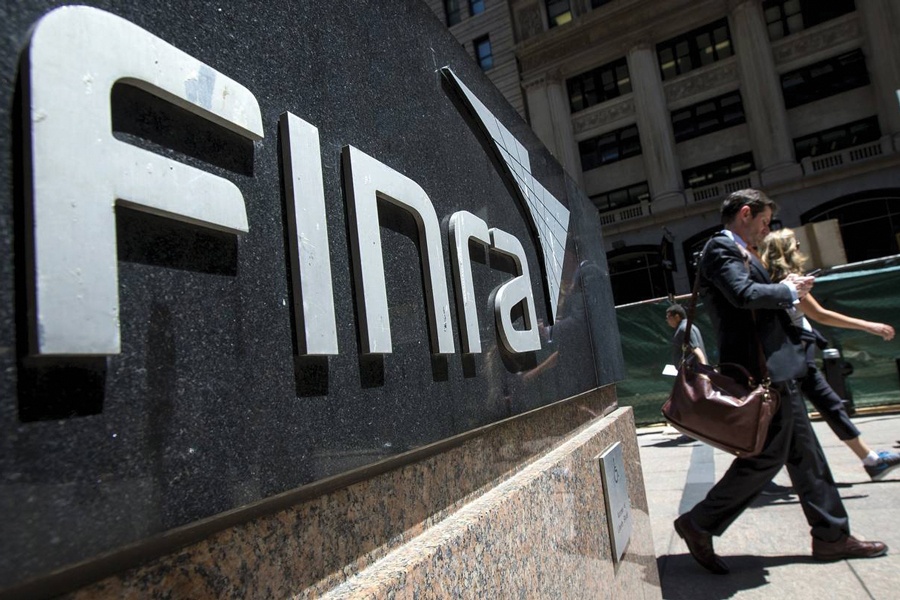

Finra is proposing to assess minimum fees of several thousand dollars on brokers and firms involved in arbitration to clear brokers’ records of customer disputes — a step that an investor advocate says does not go far enough to stop expungement abuses.
In a rule proposal filed Friday with the Securities and Exchange Commission, the Financial Industry Regulatory Authority Inc. said it is trying to eliminate a procedural maneuver that allows brokers to request minimal damages — usually $1 — when making an expungement request.
By using the so-called “$1 trick,” a broker can reduce the arbitration fees assessed to the broker and the member firm linked to the request from $9,475 to $300, according to the proposal. The $1 damages request also ensures that only one arbitrator rather than the usual panel of three will preside over the expungement proceedings.
“[H]aving three arbitrators available to ask questions and request evidence would help ensure that a complete factual record is developed to support the arbitrators’ decision at such expungement hearings,” the proposal says.
Finra is proposing to apply a minimum filing fee for expungement requests, whether they are made during a customer dispute arbitration or come as an expungement-only request from a broker. Under the proposal, a minimum process fee and member surcharge, as well as a minimum hearing-session fee, would apply to expungement-only requests. Altogether, the fees could add up to $8,350 or more. The higher fees would also ensure that expungement requests would be heard by three arbitrators.
The Finra proposal doesn’t go nearly far enough to satisfy Lisa Braganca, a Chicago securities attorney. She is co-author of a Public Investors Arbitration Bar Association Foundation study last year that asserted that Finra arbitrators grant so many expungements allowing brokers to remove customer disputes from their BrokerCheck records that the public database should be shut down.
Among the report’s recommendations is that expungement decisions be handled by regulators rather than arbitrators. Rather than attacking the problem head-on, Finra is nipping and tucking, Ms. Braganca said.
“Instead of eliminating expungement through dispute resolution, they have chosen to eliminate expungement for $1,” she said. “We’re so grateful that Finra has responded to our report by choosing to maximize its own income rather than solving the problem.”
Michelle Ong, a Finra spokeswoman, said more expungement reform is on the way.
"This proposal is just one of several initiatives that Finra’s board has approved for filing with the SEC," Ms. Ong said.
Other initiatives include a codification of expanded expungement guidance for arbitrators and another that would create a special roster of expungement arbitrators with enhanced training and experience.
Rick Ryder, president of the Securities Arbitration Commentator, said doing away with $1 damage requests is just the first step in Finra's overhaul of the expungement process.
“Finra is setting the stage for what the new expungement regime will look like,” Mr. Ryder said. “When it’s fully in place, it will be much tougher.”
The number of expungement requests has skyrocketed in the last few years, from 1,400 in 2016 to 1,936 in 2018 and 688 during the first half of 2019. The total number of Finra arbitration cases each year is about 3,500.
Investor advocates argue that expungement is granted far too often for it to be the extraordinary remedy that Finra says it should be.
“Expungement-only cases are destroying the integrity of the arbitration process and BrokerCheck,” the PIABA Foundation study said.
The SEC must approve Finra rules. The agency could request public comments on the $1-trick proposal.

Relationships are key to our business but advisors are often slow to engage in specific activities designed to foster them.

Whichever path you go down, act now while you're still in control.

Pro-bitcoin professionals, however, say the cryptocurrency has ushered in change.

“LPL has evolved significantly over the last decade and still wants to scale up,” says one industry executive.

Survey findings from the Nationwide Retirement Institute offers pearls of planning wisdom from 60- to 65-year-olds, as well as insights into concerns.
Streamline your outreach with Aidentified's AI-driven solutions
This season’s market volatility: Positioning for rate relief, income growth and the AI rebound
